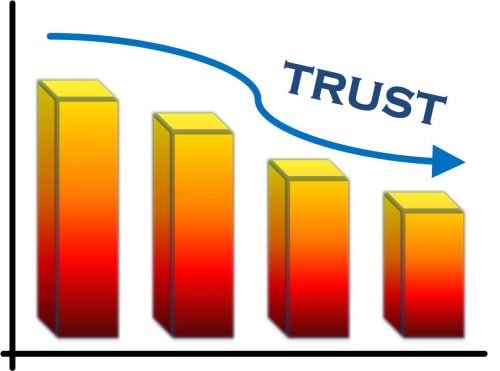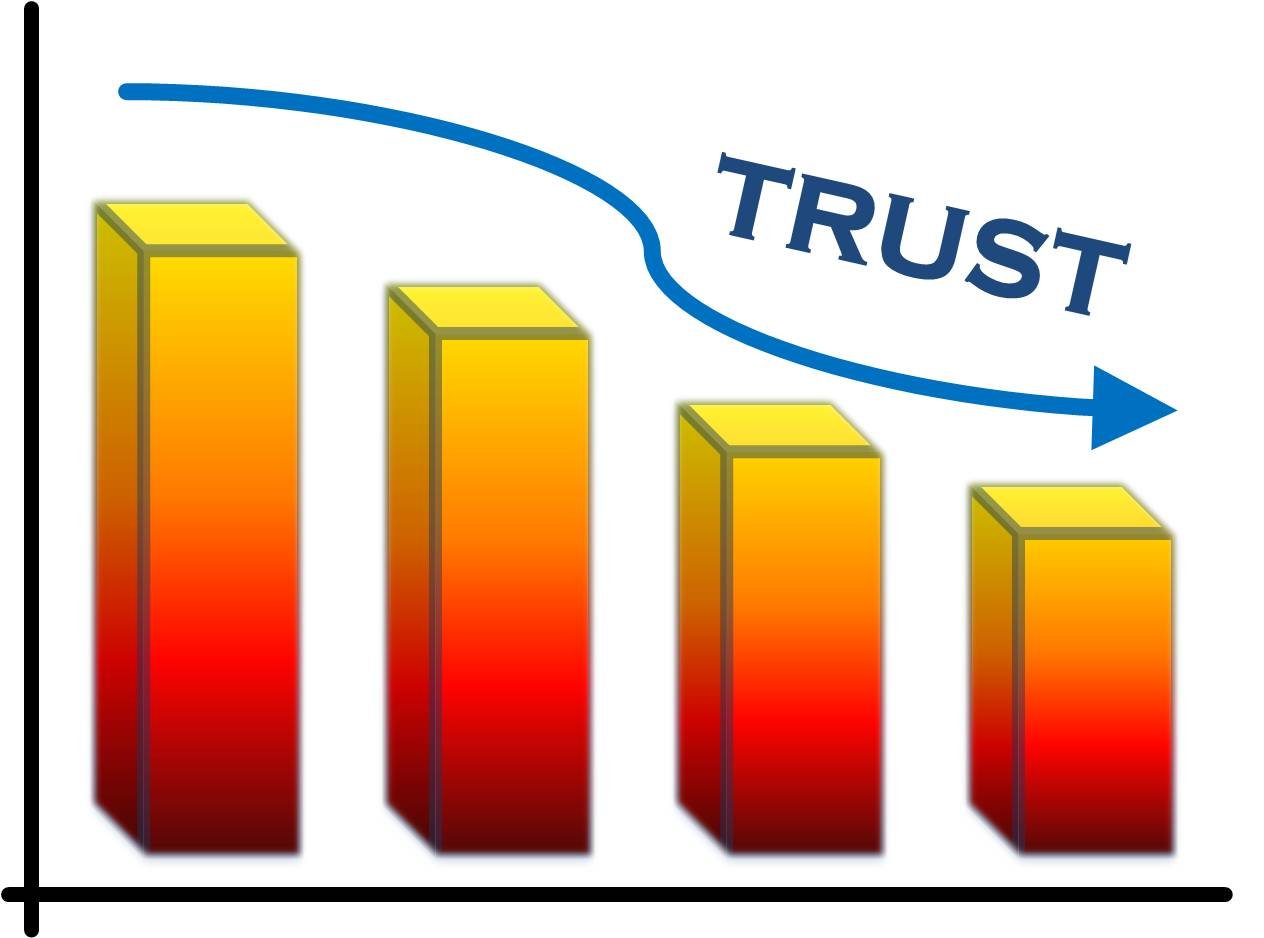Widespread mistrust of senior leaders by middle managers is holding back growth of British business, says a new report.
Only one third (36 percent) of the middle managers in a survey by the Chartered Management Institute (CMI) and leadership events specialist Top Banana said they fully trusted their bosses.
An ever greater proportion – four out of every five middle managers – said they believed the staff in their organization did not fully trust the firm’s leader.
 Lack of trust in senior leaders by middle managers is undermining business growth in UK, says new report.
Lack of trust in senior leaders by middle managers is undermining business growth in UK, says new report.
The online survey, which took place during June and July 2016, gathered responses from 1,456 CMI members in roles ranging from junior through middle managers to senior executives and partners.
The CMI say the results show while middle managers are often the ones who shoulder the task of communicating to create a culture of trust, too many senior leaders fail to recognize this, with significant consequences.
The survey also found:
– consensus on the importance of trust, with 85 percent of middle managers and 88 percent of senior leaders saying it is critical to organizational performance. Organizational performance is an analysis of a firm’s current output compared to its intended output.
– however, only 53 percent of middle managers believe they can trust what their organization tells them, and only 57 percent say the person they report to trusts the leadership team
– a strong relationship between trust, communication, and growth, with fast-growing firms tending to have a high proportion (68 percent) of managers with “high-trust” levels (who believe what their organization tells them), and rapidly declining firms tending to have a low proportion (13 percent)
– only 9 percent of middle managers are routinely asked for feedback on the information they are given to disseminate
– only 31 percent feel very confident passing on company information to their departments and teams
– about the same proportion (31 percent) do not believe their leaders work closely with them to relay their vision and strategy for the business
 Fast-growing firms tend to have a high proportion of high-trust managers (who largely believe what their organization tells them). Data from The Middle Manager Lifeline, published by CMI and Top Banana, September 2016.
Fast-growing firms tend to have a high proportion of high-trust managers (who largely believe what their organization tells them). Data from The Middle Manager Lifeline, published by CMI and Top Banana, September 2016.
‘More transparency’
The survey gave middle managers a chance to voice what they want from their senior leaders. More transparency was a big theme, as they cited the particular behavior changes they want to see:
– 63 percent of middle managers want their leaders to say what they think about important issues
– 54 percent want leaders to admit their mistakes
– 51 percent want their leaders to encourage them to raise important organizational concerns
The CMI say there is a gulf in perceptions about transparency between the top and the middle management. 72 percent of senior leaders say they believe they are highly trusted, compared with only 36 percent of middle managers saying they trust their leader to a great extent.
‘Leaders have to support middle managers to succeed’
CMI chief executive Ann Francke says their findings are particularly worrying in the wake of the Brexit referendum vote to leave the EU. She notes:
“The Brexit vote reflected a breakdown of trust in politicians, businesses and other institutions. Rebuilding it isn’t just a requirement of our political leadership – it’s a profound management challenge for the nation.”
She says their survey shows that breakdown in communication between leaders, middle managers, and employees undermines growth, and now:
“Leaders have to recognize the pivotal role played by middle managers at the heart of their organizations and support them to succeed in the months and years ahead.”

